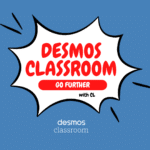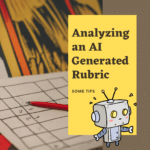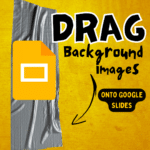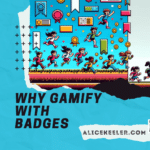On Saturday I attended EdCamp SF Bay in Oakland. It was an amazing and fun experience. I signed up to lead a discussion on gamification, or in other words… how to apply gaming principles to the classroom. The discussion was really good and I am feeling motivated to move forward with my gamification ideas for my classes this year.
I noticed that http://gamesineducation.org/ was having a conference in New York this week. After reading the session descriptions, to say the least I am wildly jealous and wish I could have attended. #GIE11 I can see that I am not the lone wolf out there, many educators find value in gaming and learning.
I am an avid player of World of Warcraft (WoW), I got hooked while taking Dr. Siegel’s gaming class at Full Sail University when getting my M.S. in Education Media Design and Technology. I was intrigued by the idea that we would be required to play games and see how this related to what we taught.
One assignment was to create a game/simulation we could use in our classroom. I created a watered down game based on Dungeons and Dragons where the students created an alter ego with a super power and went on a hero’s quest to save these little creatures whose land had been invaded. I created a map with different locations on it. My objective was to get students to understand the concept of linear inequalities. In the woods they did not know where the boundary line was between the two lands and I rigged the experience so that if they were on one side of the boundary line they would win and if on the other side that these trolls would keep coming out of the bushes until they ran away. Eventually the map was covered with Wins and Losses and it became clear where the boundary line was. Eventually I plan to expand this concept to create a year long DnD like adventure with my students to apply their learning through fantasy adventure.

The more I play WoW the more I am convinced of it’s educational benefit. I saw on Twitter that Lucas Gillespie promotes the use of WoW in the classroom. He provides a wiki with lesson plans and some amazing materials. I will be looking through these materials for ideas of how to utilize WoW directly in teaching.
In the meantime I am looking at different gaming principles I learn from WoW and how I can motivate my students. Why is it that I am willing to spend all day long playing a video game but don’t feel motivated to do my math worksheet? Collaboration, engagement, goal setting, expectation that failure is okay, creativity, choices, achievements, leveling, etc…
Oftentimes as a teacher I will have a student who is failing decide that he is going to do an assignment and upon handing in the one assignment eagerly wants to know what their grade is now…. ummm, the same. Student feels dejected and doesn’t want to try further. Take an A student, they turn in an assignment and their grade is… ummm, the same.
In World of Warcraft players start out as a level 1 and work their way up to level 85. I can level to level 2 in a matter of minutes but getting from level 84 to level 85 can take weeks. Gamers earn XP for completing different tasks. In the gamification of my classroom I will de-emphasize the grade and allow students to start at a level 1 (need clever name here, apprentice mathematician sounds lame) and work their way up to a level 60 (grand master mathematician? ). To get from level 1 to level 2 will take very little “xp” and students will need more work to raise from level 59 to level 60. Students earn xp by mastering tasks (not just for filling out a worksheet, how well did they demonstrate the standards. This is a good opportunity to think blooms taxonomy here. The higher level the demonstrate, the more xp they can earn.). When a student who has not accomplished very much completes a task he earns xp and sees visible growth from a level 2 to a level 3 and hopefully feels motivated to complete more tasks.
Another aspect of the game is achievements. My toon earns achievements for leveling up, for completing certain quests, for completing a series of quests, for doing silly things like buying a cat or wearing a certain shirt. By creating a list of achievements that students can earn any student can find success. Achievements could be “Mastered all the standards at a knowledge level” or “Used Google to create a project” or “Mastered standard 15” or “Achieved creation level” or “Collaborated with 3 people” or ….. possibilities are endless. What do you want students to know? What kind of behavior can they exhibit that lends itself to their being successful? What fun and silly achievements can they earn to help them find success and motivate them to try harder achievements? Best of all I am not awarding xp for the achievements, there is no extra credit here. This is an opportunity to show students ways that they can extend themselves and prove that they are truly heroic!
Logistics are the next step….







1 thought on “Gamification”
Hey Alice, I attended your session on Gamification at EdCamp OC/LA. I was intrigued by the idea of gamification and creating levels that students achieve. So I decided to throw it into the classroom. That week we were tackling decimals. I took state standards for decimals and organized them into levels. The first day I introduced the idea of levels by laying out the first 4 concepts and the tasks for achieving that level. By the end of the week about 1/4 had reached level 9. So I introduced level 10 of creating their own game with decimal concepts. I would say about 50% are now finished with their game and helping others create theirs. Even my most reluctant students have really gotten into levels and creating their own game. Anyway just wanted to update you. I am going to continue to work gamification in and play around with it, thanks! (By the way I gave them a decimals quiz and they scored very well.)